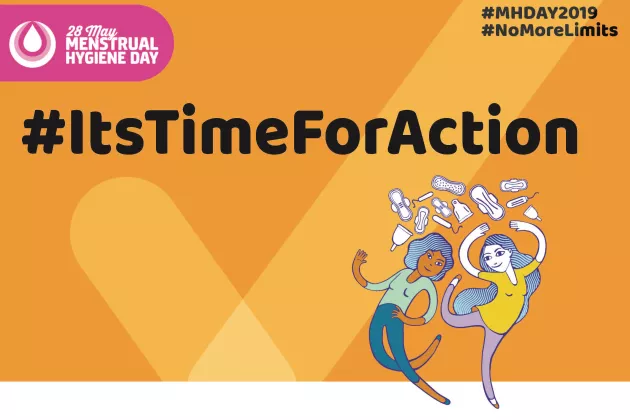Efforts to reduce period poverty for girls and women around the world has increased in the last decade because of growing scientific evidence showing how it impacts both physical and mental health, mobility, household expenditures, school performance and employment as well as sanitation systems and the environment – all of which are key factors relevant for achieving a number of the Sustainable Development Goals. In Tanzania, attention to address Menstrual Health and Hygiene (MHH) has so far, focused primarily on school girls leaving a knowledge gap about how it affects the country’s menstruating women.
In a new pilot study in Moshi, Tanzania, LUCSUS researcher Sara Gabrielsson, studies the link between health – economy – well-being for women using menstrual cups. By applying an integrated and mixed methods study approach, including the novel Swab Party, comparisons between menstrual cup users and non-menstrual cup users were made.
What is unique about this study?
The study is the first of its kind because it focuses on women in a low income country setting who have been using menstrual cups for over more than two years. It is also quite novel in its research approach, exploring the links between menstrual cups and well-being, menstrual/reproductive health, and finances using the Integrated Model of Menstrual Experience framework and the multi-stakeholder partnership between academia, civil society and the private sector, represented by the researchers from LUCSUS, National Institute of Medical Research in Tanzania, and the NGO Femme International with assistance from the NGO Give a Heart to Africa, and the company Lunette Cup.
What are the most interesting results?
We found that menstrual cup users suffered fewer menstrual/reproductive health symptoms and diagnoses like itching, rashes, UTIs, and bacterial vaginosis. They also reported less anxiety and increased financial security because cups result in fewer menstrual expenses. The women using the menstrual cup reported that they feel safe and free during their periods, not constantly worried about leaking, smelling, or being somehow found out. They worried less about where and how they would safely change and dispose of menstrual waste. And because anxiety and pain are part of the same feedback loop, less worry and fear meant they felt less menstrual pain.
The study also found that cup users were at work more, lost less income, and had more robust social lives, missing out on fewer daily activities.
How can these results be used to improve Menstrual Hygiene and Health in Tanzania/Africa?
These findings reveal that there are significant health and well-being benefits for women to be had from using menstrual cups. Such findings are vital information for governments designing Menstrual Hygiene and Health policies and NGOs implementing Menstrual Hygiene and Health programs to address period poverty, as it gives evidence for their inclusion as a viable menstrual care option alongside other products such as disposable and reusable pads. Once such legitimacy has been established promotion of menstrual cups are made easier and their availability, accessibility and hopefully affordability can improve, thereby offering menstruators more safe menstrual care options to manage their periods in the future.
Policy brief: Health outcomes from using menstrual cups – A pilot study from Moshi, Tanzania




